Chemistry
-
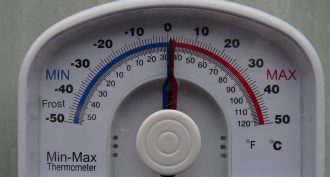 Materials Science
Materials ScienceExplainer: Temperature and electrical resistance
Higher temperatures mean more energy and more motion. In contrast, cold means slow moving molecules.
By Ron Cowen -
 Chemistry
ChemistrySome air pollutants seep through skin
The skin is the body’s largest organ. And it can let in as much or more of certain air pollutants than enter through the lungs, a new study finds.
By Janet Raloff -
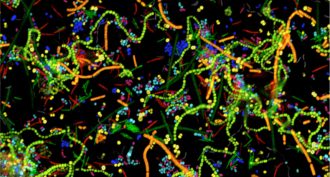 Microbes
MicrobesSlime cities
Biofilms are like tiny cities of bacteria — some harmless, others destructive. Scientists are learning how to keep these microscopic metropolises under control.
-
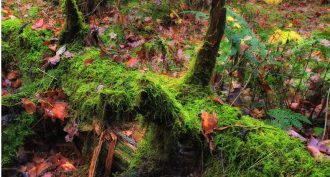 Chemistry
ChemistryScientists Say: Organic
These days you might think organic refers just to food. But it has a completely different meaning in chemistry.
-
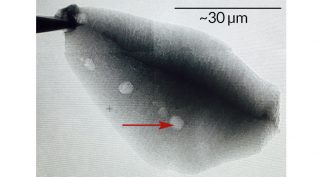 Life
LifeNews Brief: Rare gem may hold earliest sign of life
This fossil, such as it is, offers no indication of what that life might have looked like. It merely holds carbon in a form typical of the type preferentially collected by living organisms.
-
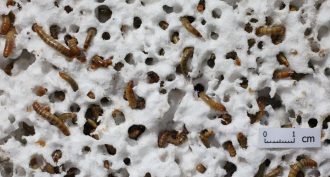 Environment
EnvironmentMealworms chow down on plastic
Gut bacteria in mealworms break down polystyrene. Feeding plastic to the worms, or the germs they carry, could be a way to get rid of these wastes.
-
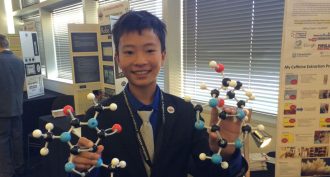 Chemistry
ChemistryMaking caffeine content crystal clear
Many popular drinks contain caffeine — a stimulant that in high amounts can keep you up at night. One teen is now measuring just how much is in the beverages we drink.
-
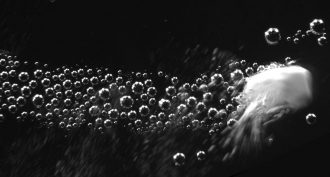 Health & Medicine
Health & MedicineThese bubbles treat wounds
New research shows bubble-powered drugs can travel upstream, against the flow of blood, to seal wounds shut.
By Meghan Rosen -
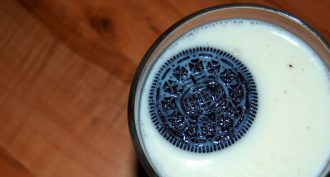 Chemistry
ChemistryGot milk? Do you know what’s in it?
One teen was dismayed to learn milk might host harmful pollutants. This prompted him to use his science fair project as a way to find out just what was in his favorite drink.
-
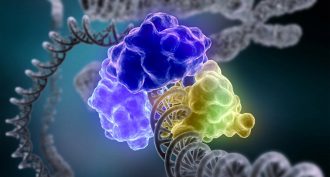 Chemistry
ChemistryTrio gets chemistry Nobel for figuring out DNA repair
Three researchers have won the 2015 Nobel Prize in chemistry for working out how cells fix damaged genetic material.
By Meghan Rosen and Sarah Schwartz -
 Chemistry
ChemistryA teen turns an autumn chore into a science project
Many scientists are trying to turn plants into a renewable fuel. One teen decided to help, by extracting sugars from the dead leaves on his lawn.
-
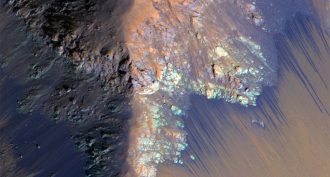 Planets
PlanetsPicture This: Evidence of liquid water on Mars
Mars hosts surface salt deposits. They appear to come from seasonal water flows on the Red Planet, a new study concludes.